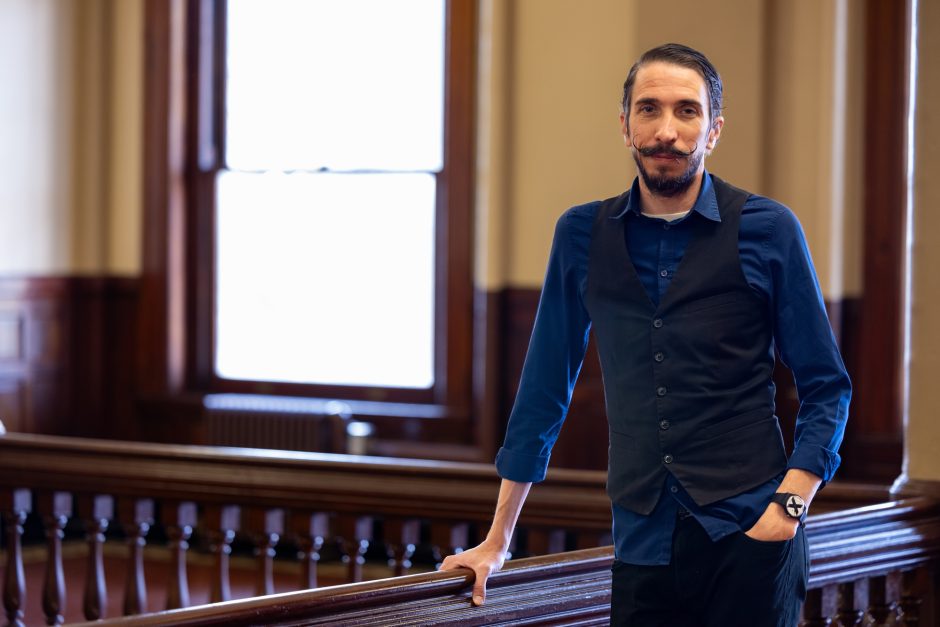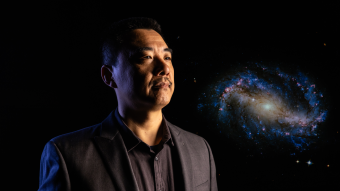By Eric Stann

Nov. 11, 2024
Contact: Eric Stann, 573-882-3346, StannE@missouri.edu
Photo by Abbie Lankitus
Chris Deutsch’s time as a combat engineer and paratrooper in the 82nd Airborne shaped him into someone who quickly adapts, thinks on his feet and gets the mission done — no matter the challenge. Despite the demands of his service work, he was equally drawn to the quiet and reflective process of reading, sparking a lifelong love for discovering historical stories.
Today, he’s on the front lines of another quest: to help piece together information about the nation’s missing military members in support of the Department of Defense POW/MIA Accounting Agency (DPAA).
Deutsch is the University of Missouri DPAA research partner fellow and a historian at the Kinder Institute on Constitutional Democracy.
More to the story
History books opened Deutsch’s eyes to the power true stories have in revealing the human experience. Unfulfilled by simple or incomplete narratives, he always found himself questioning whether there was more to these stories.
“One of history’s key roles is to explain outcomes, and by understanding the human condition, we can help explain how and why events happened,” he said.
After his time in the service, Deutsch earned bachelor’s and master’s degrees in history at California State University, Sacramento. He chose Mizzou for his doctoral studies, in part to work with Catherine Rymph, now dean of Mizzou’s Honors College, after reading her book on women in politics.
Deutsch graduated from Mizzou in 2018 and stayed on campus to teach and conduct research. Now, his background and love for history provide him with a solid foundation for his ongoing DPAA project.
Missing but not forgotten
By studying wartime maps, records and reports, Duetsch’s scholarly work assists the DPAA with its mission to provide the fullest possible accounting for missing personnel.
As part of his work, Deutsch often gathers firsthand accounts that contain incomplete information. Using his investigative skills, he meticulously pieces together these fragments in his mission to uncover the meaning behind these documents. Driven by his belief that there’s more to a story than meets the eye, he applies patience and persistence to analyze documents and reconstruct the final moments of a missing service member or prisoner of war.
“These primary source documents are written in a specific way, so by carefully analyzing the language — and using modern tools such as ArcGIS — we can figure out what happened, even when it’s unclear,” he said. “For example, if I read a battle report from one commander, I’ll compare it with another commander’s report. Small details, such as when a boat launched or a plane flew overhead, can give us a fuller picture and change how we understand what happened.”
Deutsch’s work, a slow and methodical process, helps put together the lost puzzle pieces. He provides the DPAA with a clearer picture of what transpired before, during and after wartime events. Once his research is sent off to the agency, the DPAA is solely responsible for conducting recovery missions for these missing service members and prisoners of war.
“Studying history helps us understand ourselves, our world and the forces that shape it,” he said. “I value the complexity of the past and strive to help reveal the lost stories of the nation’s missing military members.”



